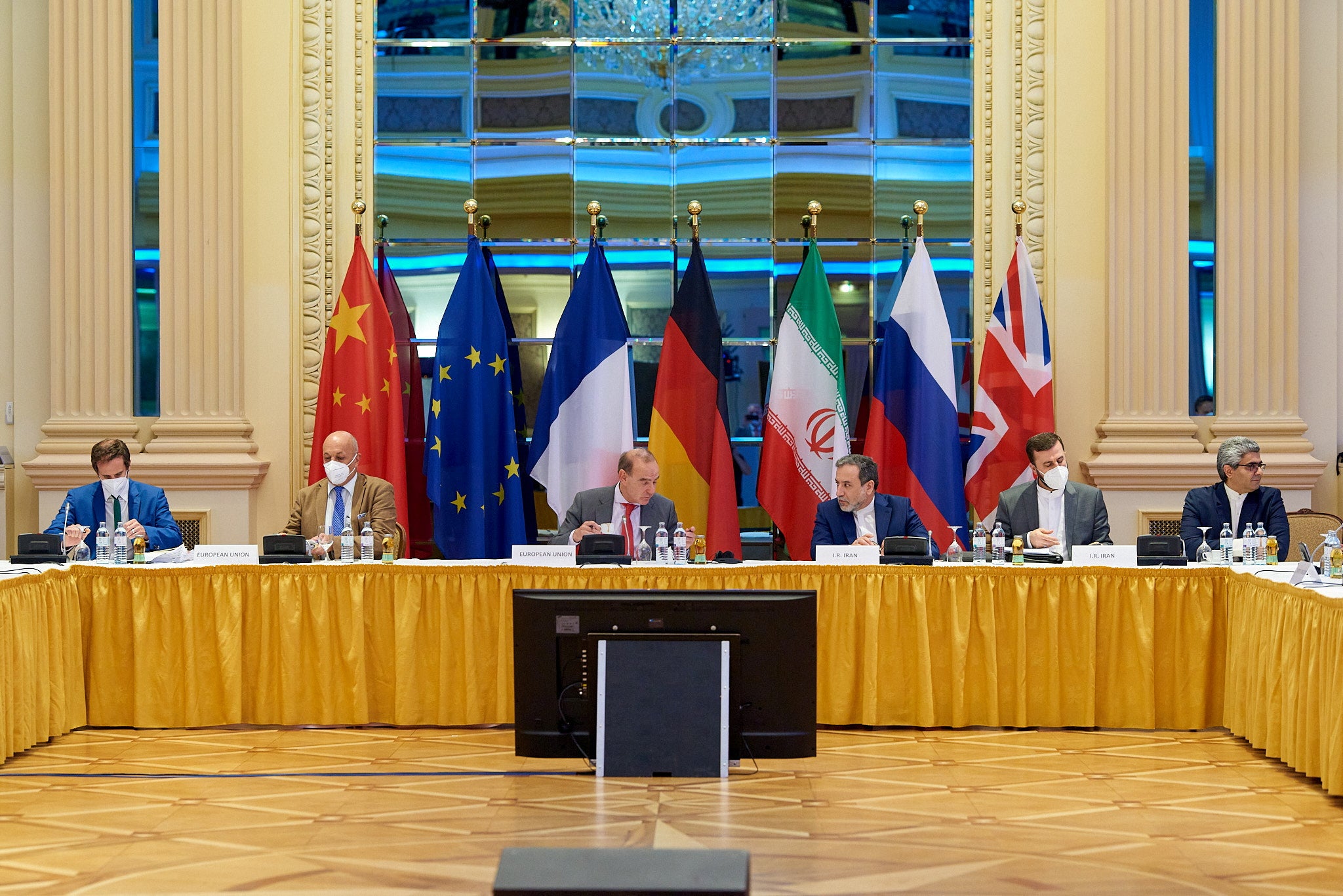Iran ups stakes in nuclear talks with production of potential bomb technology
The IAEA has said Iran has followed through on plans to begin the production of sensitive uranium metals needed for the assembly of nuclear weapons

A dispute over Iran’s latest nuclear advances is adding further tensions on ongoing talks meant to restore an atomic technology deal abandoned by the United States.
The United Nations’ atomic watchdog has reportedly confirmed that Iran has followed through on plans to begin production of sensitive uranium metals that are essential for the assembly of nuclear weapons. This has prompted complaints by the U.S. and European allies that Tehran has violated its obligations under the deal and violating the spirit of ongoing talks.
Kazem Gharibabadi, Iran’s envoy to the International Atomic Energy Agency, said it had informed inspectors two years ago of plans to produce the uranium metal and nine days ago of its move to begin doing so as fuel for a Tehran Research Reactor used for cancer therapies.
He said the uranium silicide plates would be enriched to 20 percent purity.
“Silicon fuel is an advanced type of nuclear fuel whose technology is available to a handful of countries,” he was quoted as saying by state broadcasting. "This measure, which will significantly improve the quality and quantity of radiopharmaceutical production, will make the Islamic Republic of Iran one of the leading countries in the field of nuclear technology.”
The disclosure prompted the United States, United Kingdom, France and Germany to voice alarm and express concern the move could damage ongoing attempts to return to the terms of the Joint Comprehensive Plan of Action (JCPOA). The deal was negotiated by former President Barack Obama and other world powers but the administration of Donald Trump sought to destroy it, reimposing draconian sanctions on Iran, which responded by ramping up its nuclear programme.
“It is worrying that Iran is choosing to continue to escalate its nonperformance of its JCPOA commitments, especially with experiments that have value for nuclear weapons research,” US State Department spokesman Ned Price told reporters. “It’s another unfortunate step backwards for Iran, particularly as we, for our part, have demonstrated our sincere intention and willingness to return to the JCPOA and to find more productive and durable ways to deal with the nuclear issue.”
The latest development does not suggest Iran is racing forward to build a nuclear weapon. Uranium metal must be enriched to 90 percent and shaped with precision instruments to form the core of an atomic weapon. Neither non-proliferation experts nor western security officials believe Iran has that capacity, or is determined to acquire an arsenal of nuclear weapons in the immediate future.
They have this hedging programme in that they do things under a civilian cover that can be used for military purposes, and this is really moving toward the edge of that strategy and doing things that are designed to be provocative in order to gain leverage
But they also worry that Iran is steadily progressing in its mastery of sensitive technologies, gaining the metallurgic expertise it might need to be able to quickly build a bomb if it so decided. Documents recovered from Iran suggest that it also tried to experiment with production of uranium metals at two secret facilities before 2003, when its clandestine nuclear activities were made public.
Iran is also determined to build up leverage in ongoing talks to pressure western partners into accepting its terms for a return to the JCPOA. Progress at the talks in Vienna appears to have slowed after six rounds of discussions.
Tehran’s demands include that it be allowed to continue using advanced centrifuges to replace those destroyed in an alleged Israeli sabotage attack along with guarantees that a future American administration does not again abrogate the nuclear deal.
“They have this hedging programme in that they do things under a civilian cover that can be used for military purposes, and this is really moving toward the edge of that strategy and doing things that are designed to be provocative in order to gain leverage,” said Fabian Hinz, a non-proliferation expert.
In a statement, the foreign minister of France, Germany and the U.K. urged Iran to “stop this brinksmanship” and warned Iran that such a gambit would fail. “We have made clear that such provocative steps would not and will not provide Iran with any leverage in negotiations,” it said. “Instead, they would only intensify our concerns with Iran’s activities.”
The talks in Vienna are complicated by a change of administration in Tehran. The relatively moderate Hassan Rouhani is about to hand over the reins to hardliner Ebrahim Raissi, who is set to take office in early August.
Though Mr Raissi has said he is willing to continue talks, his administration may make fresh demands, or set a less cooperative tone. Mr Hinz, who lived and studied in Iran for a year, said some of Iran’s perceived provocations—including ongoing drone and missile attacks on US bases in Iraq and Syria—might be an attempt by the regime to save face.
“What the Iranians are doing is an attempt to build a certain narrative, that the Americans were forced to re-enter the JCPOA through their actions,” he said. “They want it to appear that Iran is not begging to come back to the deal.”
Join our commenting forum
Join thought-provoking conversations, follow other Independent readers and see their replies
Comments
Bookmark popover
Removed from bookmarks